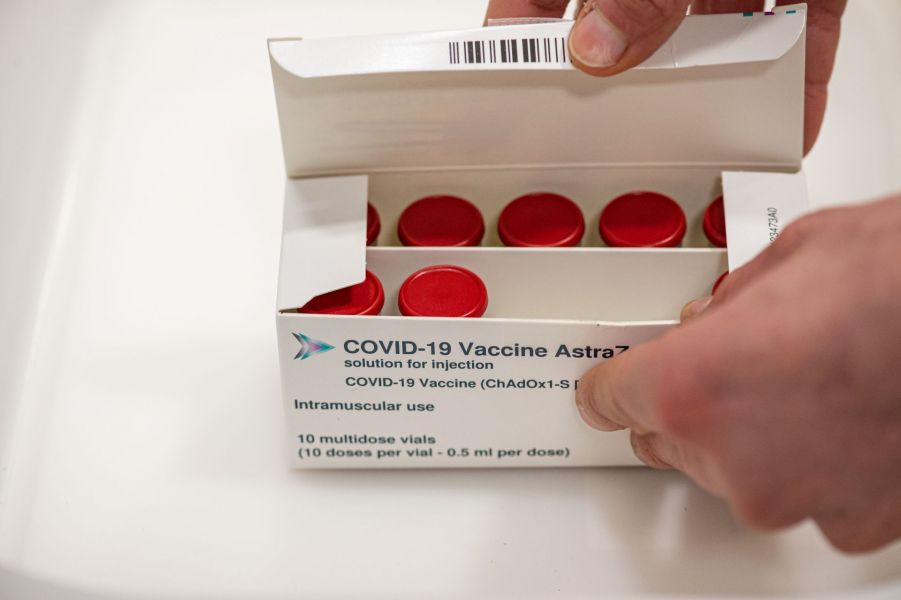The ongoing confusion around the use of the AstraZeneca vaccine, which culminated recently in Belgium’s decision to halt its use for people 55 and under, has undermined people’s confidence in vaccines, according to a survey from consumer protection group Test Achats.
While nearly half (47%) of the 1,000 Belgians surveyed between 26 and 30 of March said they would definitely get a vaccine if invited and 27% said they probably would, 15% said they would probably not, and 11% said they would definitely not.
More than half of the respondents who are not sure whether they’ll accept an invitation to be vaccinated say they’re afraid of possible side effects.
Almost 2 out of 10 Belgians are suspicious of certain vaccines, and 1 out of 6 Belgians do not trust the process to develop or approve the vaccine.
Belgians cited the confusion surrounding the AstraZeneca vaccine as having negatively impacted their confidence not only in that vaccine (57%) but also in other Covid-19 vaccines (41%).
Belgium’s latest decision to temporarily suspend the use of AstraZeneca’s vaccine for people under the age of 56 is unlikely to strengthen this confidence.
Between clinical trials that were not representative enough for the elderly and suspicions of a link between the vaccine and thrombosis, among other things, the Swedish-British company has regularly been in the news throughout the pandemic.
The publicity hasn’t worked in its favour.
Related News
- Temporary limit on AstraZeneca vaccine will have 'minimal impact' on vaccination rollout
- Vaccine link to Belgium's one fatal blood clotting case remains unclear
Four out of 10 respondents also said that the controversy around the AstraZeneca vaccine has had a negative impact on their perception of the work done by the European Medicines Agency, and on the protection of citizens' health by the Belgian government.
Interestingly, only a third of the population considers itself well informed or very well informed about vaccines at all. The survey found that the more people felt informed, the more willing they were to be vaccinated.
“What we need to remember from this aspect of our survey is that the more informed people feel, the more willing they are to be vaccinated,” said Julie Frère, spokesperson for Test Achats.
“Indeed, the willingness to be vaccinated as soon as possible is 68% among people who consider themselves well or very well informed, whereas it is only 25% among people who consider themselves little or not informed. We can only reiterate the importance of targeted, accessible and transparent information for citizens.”
Survey respondents were also asked about vaccine passports and while Belgians were in favour of it overall, 37% fear that their stored health data will be used for purposes other than controlling the pandemic and more than half worry the passport will unfairly discriminate between vaccinated and unvaccinated people.
This is the tenth coronavirus related study from Test Achats.
Lauren Walker and Helen Lyons
The Brussels Times

